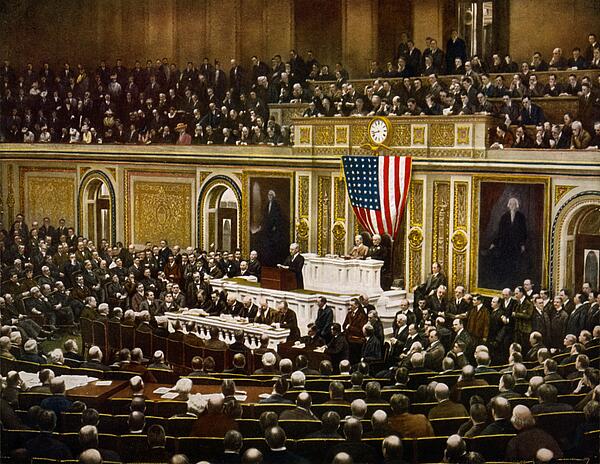The President and Congress
The president's relationship with Congress is essential to American politics. Congress is the chief legislative body of the United States and as such, it is essential that it works constructively with the president to pass laws that benefit the country.
According to political commentators, the relationship between the president and Congress is the “essential link” in American politics.
Congress decides whether to pass potential presidential authorisations. There are more favourable outcomes when Congress has a politically positive relationship with the president. However, the makeup of Congress can be unrepresentative of the political standing of the president. For example, President Obama has been at odds with Congress ever since Republicans took control of the House in 2010.

It’s essential that presidents have a good relationship with Congress if they stand a chance of getting their policies passed. For example, President John F Kennedy had a poor relationship with Congress and because of his very narrow victory over Richard Nixon in the presidential election, he was totally dependent on Congress for enacting policies. In his own words, "A good many programs I care about may go down the drain as a result of this [his relationship with congress] - we may all go down." It also did not help that he was a liberal northern democrat, while the party majority was with southern democrats.
It is impossible for a president to avoid working with Congress - the two are incompatible without the other. In recent decades Congress has ratified some of the most important bills after plenty of backroom debate. For example, Lyndon Johnson’s Great Reform Bills were passed after a long debate among the Congressional chairmen.
Bargaining
If a bill is particularly controversial, Congress and the president can bargain with each other. The president will create a vague statement for the proposed legislation, which will be added to and developed by members of the Executive Office. They will then contact Congress who can privately identify potential issues with the bill. As a result of these prior amendments, when Congress considers the bill for ratification it is usually passed with ease as the potential sticking points are already resolved.
It is in the government’s interest to keep disagreements between the president and Congress out of the public eye. The have only been a few occasions when a dispute between the President and Congress has erupted. One of the most publicised disputes was during Bill Clinton’s presidency, when Congress attempted to oust him over his affair with Monica Lewinsky. Neither group benefited from the scandal - the president was accused of being an adulterer, while the Republicans in Congress exploited the scandal to discredit the president. The scandal revealed the divide between the president and Congress.
What does the Constitution say about the President and Congress?
The Constitution does not envision a master-and-servant relationship between the President and Congress. The writers of the document took care to create a system of government in which there is a balance of powers and extensive checks and balances between them. In fact, the framers actually gave more specific powers to Congress, for they were wary that a too-powerful President would repeat the wrongs that the King of England had inflicted on the colonies.
Over time the president’s influence has grown, but during the 19th century, congressmen were the driving force in American government.
Right to Veto
Article I Section 7, states that the president has the right to veto legislation presented to him. If a president refuses to sign the legislation presented to him, then that legislation in its current form does not become law. In order to overturn this veto, Congress must muster a two thirds majority.
Presidential Recommendations
Article II Section 3, states that the president can recommend for Congress to consider measures that he judges as “necessary and expedient". This power to recommend enables the president to decide upon the order of priorities.
Though Congress has the right to reject presidential recommendations, it rarely does so. If there is disagreement over the recommendation, it may be diluted to make it more likely to pass through Congress. Both parts of government have to be seen working together for the people.
All presidents base their relationships on Congress on the power of recommendation, lobbying, agenda setting.
For a president to have a successful relationship with Congress, it is essential that he has powers of persuasion. A president has to rely on developing good relations with Congress, good tactics and bargaining skills in order to win support.
MLA Citation/Reference
"The President and Congress". HistoryLearning.com. 2026. Web.
